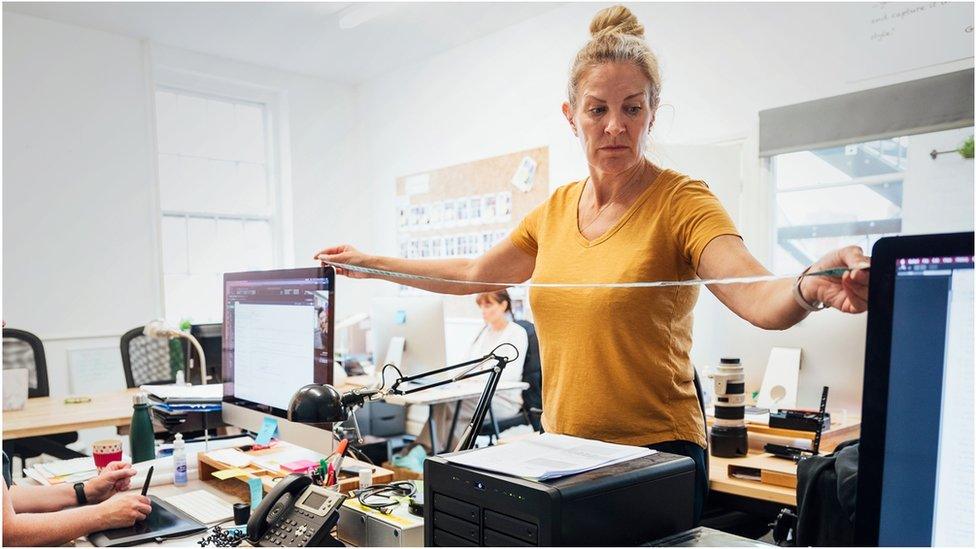'Business has boomed but it doesn't mean we're coping'
- Published
- comments

Nick, who makes video games, has seen his industry boom during the pandemic but he says that does not mean he and his team are still "powering through".
After more than a year of rolling lockdowns, which have afforded him more time to speak to friends and family, Nick (not his real name) told the BBC he "realised that life is a lot more fragile than it seemed".
He says he has "absolutely" become less focused on his career since the beginning of the crisis.
He's now "recalibrating" his goals.
And he's not alone. That's according to a study by Aviva, which found 47% of employees were less career-focused because of the pandemic.
Around two in five people said they could never switch off from work.
"One result of this always-on, ever-present culture is that 40% of employees are concerned about work-related burnout," the insurer said.
How to spot if you are suffering 'burnout'
Half of people complained that the boundary between work and home had become "increasingly blurred". And the impact of that has disproportionately affected women, with 46% concerned about burnout - compared to 35% of men.
Meanwhile, 24% of women said the pandemic had a negative impact on their work-life balance. That compares to 16% of men.
Debbie Bullock, wellbeing lead at Aviva, told the BBC's Today programme that the pandemic and lockdown had "given people pause for thought about where work fits into their lives".
She added that technology and the digital age meant it had "become harder for some people to switch off" from work.
"The pandemic may have been a collective experience, but the impact has been fragmented in so many ways, with women especially facing particularly acute stresses from the blurring of lines between home and work," Ms Bullock said.
She said it was important for employers to be aware and respond to the difficulties staff are facing and take action to help: "If you don't make time for wellness you are going to have to potentially make time for illness."
Nick said: "From a business perspective, happy [and] satisfied people will stick around and do their best work, but also, at the end of the day, what's the point of always doing more if it makes us miserable?"
Aviva's study of more than 2,000 employees of larger companies found that just 14% would favour returning to the office full time, with 15% saying they would prefer to work from home five days a week.
Gender divide
Men were more likely to favour a full return to the office, while more women said they would rather work from home full time.
Aviva said employers would need to "carefully examine" how they bring staff back to avoid deepening the gender divide between men and women.
It warned of "the risk that those - often women - with primary care roles for their children or parents are put under increasing strain".
"The journey towards the workplace of the future has been accelerated by the pandemic," Aviva's Ms Bullock said.
"Employees will look for something in return to encourage them back to the office, and employers must ensure offices become a destination for collaborating, mentoring and socialising to rebuild relationships."
Last month, dating app Bumble shut its offices for a week to combat workplace stress. Its 700 staff worldwide were told to switch off and focus on themselves.
One senior executive at the firm tweeted that founder Whitney Wolfe Herd had made the move "having correctly intuited our collective burnout".
Related topics
- Published9 March 2021

- Published6 May 2021
